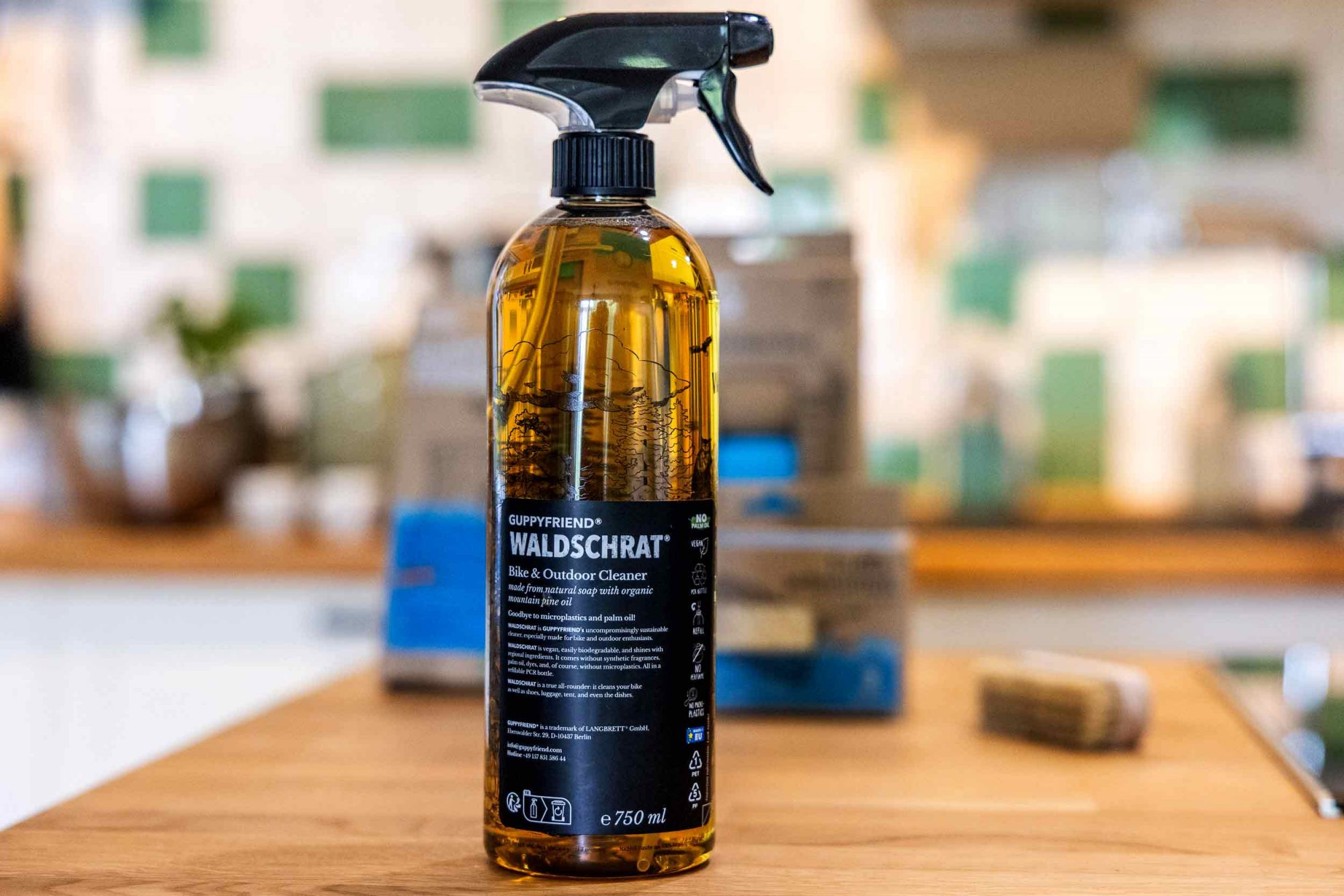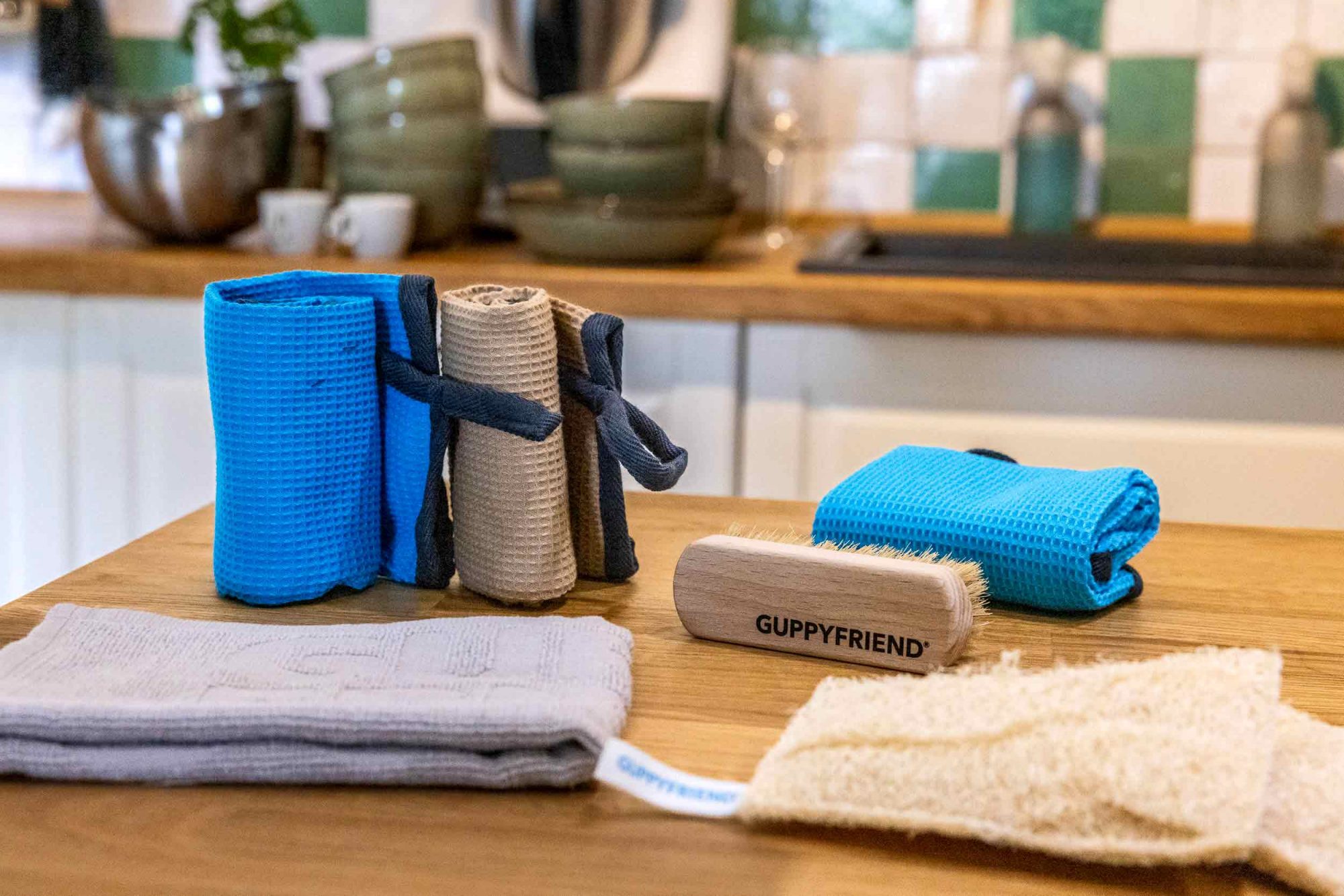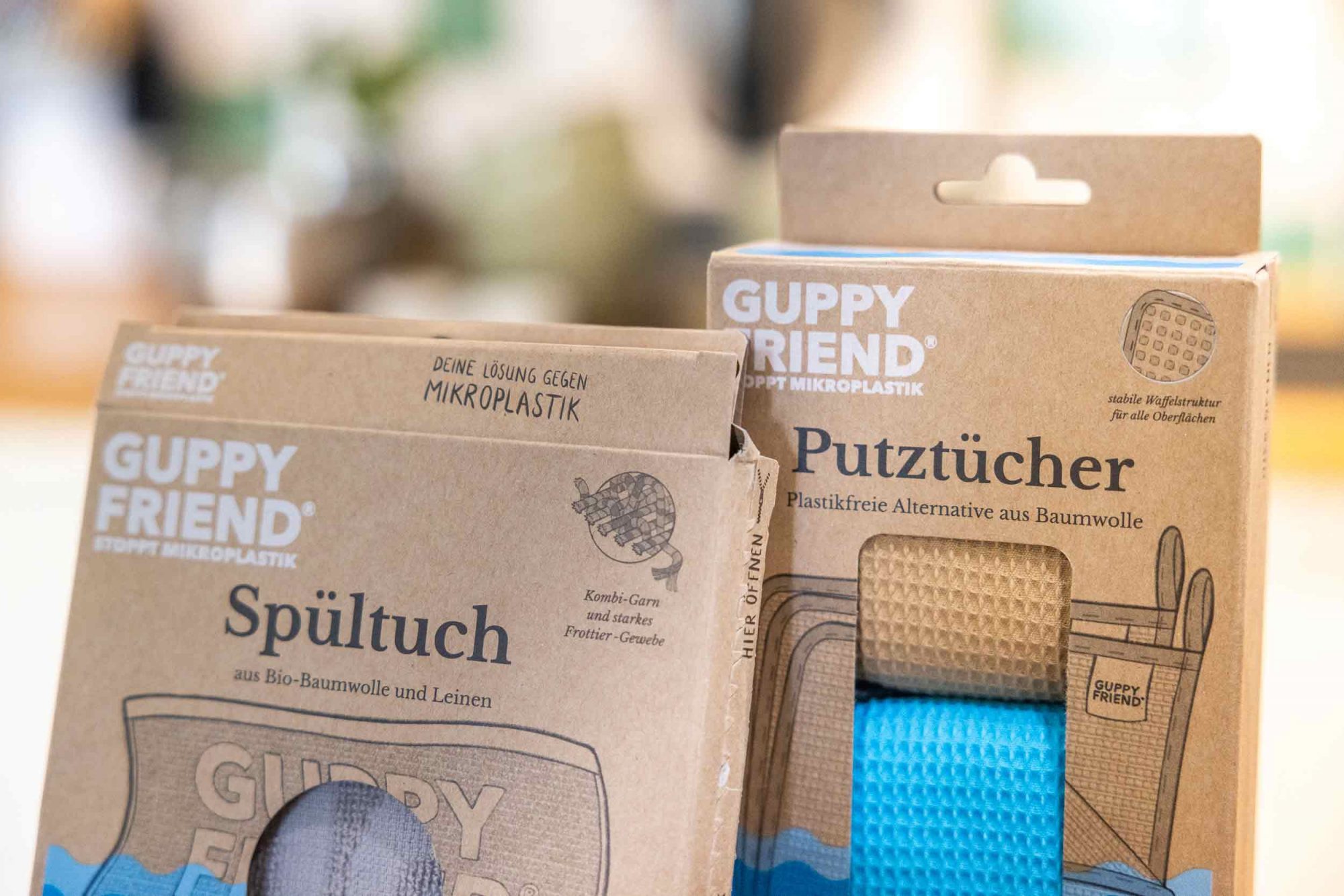Content
Guppyfriend Waldschrat – sustainable bike cleaner
When you clean your bike, you always have a bad “ecological conscience”, don’t you? Gut feeling says: anything that effortlessly removes all the dirt and grime from the frame and drivetrain cannot be good for the environment. Since we are very interested in the topic of sustainability, we have of course long since found biodegradable and ecologically “better” cleaning agents, such as the one from Antidot. With its Waldschrat, Guppyfriends has an outdoor cleaner in its range whose properties sound really good: It is supposed to be easily biodegradable, is free of microplastics, vegan and is made from regional ingredients in the foothills of the Alps. It should contain, among other things, rapeseed, pumpkin and hand oils, but no microplastics, no petrochemicals, no dyes and no palm oil.

Besides the bike, the Waldschrat is suitable for cleaning (almost) everything you can get dirty on the road: Backpack, outdoor kitchen, hiking boots … That sounds good! But the Waldschrat raises questions. Once you land on the Guppyfriends website, you will inevitably be confronted with the issue of microplastics. And with the question: What is microplastics, why is it so bad and why should you avoid microplastics?
What is microplastics and why is it so bad?
Microplastics are tiny plastic particles that are basically found everywhere plastic is used. They can come from a variety of sources, such as the decay of larger plastic parts, abrasion from tyres and plastic surfaces, or synthetic clothing during washing. These particles are so small that they are often invisible to the naked eye and can easily enter the environment.

This is bad because:
- Microplastics are massive environmental pollutants: Microplastics are a form of plastic pollution and can be found in almost any environment, from the oceans to remote areas. The particles are difficult to degrade and can remain in the environment for hundreds to thousands of years.
- Microplastics endanger ecosystems: Microplastics can enter food chains as they are absorbed by organisms. As a result, there is a risk that it will accumulate in the food chains and ultimately end up on our plates.
- This results in health risks: There is increasing concern about the potential impact of microplastics on human health. Although research is still ongoing, there is evidence that microplastics can be detected in the human body and may have health effects.
- Microplastics upset ecosystems: Microplastics can also disrupt the function of ecosystems by affecting the living conditions for certain organisms or interfering with the transfer of nutrients and pollutants. Especially in the oceans, microplastics can be dangerous for marine organisms. Fish, birds, marine mammals and other animals can ingest the particles with their food or become entangled in them, which can lead to injury and death.
So basically there is no question: microplastics cannot be good and we should avoid microplastics wherever possible. The Guppyfriend brand has dedicated itself to precisely this problem. Guppyfriends wants to offer products that are as sustainable as possible and that help to actively avoid microplastic.
How can we avoid microplastics?
Guppyfriends has put together a lot of tips on its website, which you can find here. You will be surprised how you can release microplastics or avoid microplastics when doing everyday things such as body care or washing. And you learn how to avoid it relatively easily by choosing microplastic-free products. And since Guppyfriend has made it their business, they have the right products on offer. We would like to introduce a few of them to you here.

For example, there is the dishcloth. It is made in Germany and consists of organic cotton and linen. Unlike synthetic dishcloths, it does not release microplastics. The loofah sponge is supposed to be a platsik-free alternative to normal rinsing sponges. These sponges are organically grown and can be easily composted after use. Guppyfriend continues to offer wash bags, heavy duty detergents and various water filters. The latter allow you to actively filter microplatics out of your wastewater. For example, you can filter the water that is drained from your washing machine to prevent plastic from entering the environment.
Who is actually behind Guppyfriends?
Behind the Guppyfriend brand are the founders Alexander Nolte and Oliver Spies – also the brains behind the sustainable skateboard and clothing brand Langbrett. The idea for Guppyfriend came about when they were concerned with the effects of microplastics on the environment. They realised that synthetic fibres release small plastic particles during the washing process, which can enter the environment through the wastewater and cause damage, especially in the oceans.
However, the Guppyfriend brand does not only pursue the goal of reducing microplastics. They are also committed to raising public awareness of the issue of microplastics and the responsible use of clothing. They are also committed to projects and organisations that work to protect the environment and prevent plastic pollution.